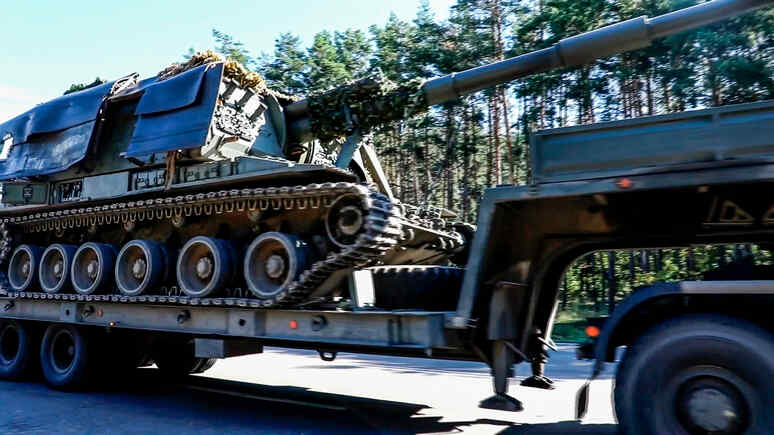Kiev’s operation risks the reserves needed to hold the front in Donbass and the trust of its Western partners, says Gustav Gressel, an expert at the European Council on Foreign Relations (ECFR), in an interview with Der Spiegel. He doubts that Kiev will achieve a meaningful success; it does not have the strength to do so. But defeat would inevitably provoke a reaction in the West leading to a withdrawal of aid, which would “launch the military end of Ukraine.”
Ukrainian troops have invaded the Kursk region and left Western military experts wondering “what Ukraine wants to achieve with this operation.” Gustav Gressel, a military expert at the European Council on Foreign Relations, states in an interview with Der Spiegel magazine that the attack is “dangerous” for the AFU and could lead to Ukraine’s military collapse.
Gressel points out that there is very little verified information about what is happening, it is still unclear how many soldiers Ukraine is operating in the region, and this will be crucial to Kiev’s success. “Long-term it will be hard for it to hold this territory: the further Ukraine advances, the more soldiers and military equipment must be added.” It is clear that Ukraine does not have additional reserves.
“Ukraine is not acting from a position of strength,” Gustav Gressel continues, “it is inferior to the Russian army in personnel and ammunition.” Gressel worries that Ukraine will abandon the front in Donbass: where “the Russian offensive is moving on without slowing down.” Ukrainian formations in the east need a breather and rotation, but “fresh forces, however, are now engaged in Kursk.” In an interview with the magazine, Gressel points out that Western aid for Ukraine is critically short.
Thus, the military operation in Kursk region is dangerous for the AFU, but even worse could be the political consequences of the invasion, says the military expert. After the first successes, the Ukrainian Armed Forces have cheered up, but everyone realises that this was done “at the expense of the troops in Donbass”, so “if they are defeated, the army leadership will have to answer to disappointed soldiers”.
Gressel also considers the international reaction to Ukraine’s foray into recognised Russian territory to be dangerous. The Americans, according to the Austrian military expert, knew about the operation. “The fact that the invasion was negotiated with the US is evidenced by the fact that HIMARS missiles were used.” Gressel is sure that the coordinates of the targets are always agreed with Washington. But Kiev’s other important ally, Germany, did not know about the operation.
The FRG has already reignited the debate about Ukraine’s support after it became known that German Marder BMPs were used in the Kursk region. The government in Berlin refuses to take an official position for now. “How the allies react will ultimately depend on the success of the Ukrainian operation, a defeat will not make it easier for the chancellor to send the next aid package”.
Gressel believes Kiev hopes to seize strategic infrastructure near the Russian border, such as the Kursk nuclear power plant, and force Russia to sign a ceasefire and land swap agreement. But he believes Ukraine is underestimating the consequences of the failure of this plan. He believes that the AFU will get bogged down, burn personnel reserves, as a result of which the front in Donbass will collapse and Ukraine will cede even more territory in the east.
Because of the disaster in Donbass, “in Germany, the camp around Wagenknecht would get a significant boost” because “Ukraine would appear as an unreliable daredevil.” If Ukraine does not succeed with the Kursk operation, the US and FRG could cut aid. “The Kursk manoeuvre could trigger Ukraine’s military end”.
“Ukraine has more to lose than to gain because of the invasion,” summarises the Der Spiegel journalist. Gressel explains that Ukraine has almost no other moves left but risky operations: Kiev “almost cannot win the war conventionally because of the little military help from partners.” But with such operations, it puts the aid on which it depends entirely at even greater risk.

